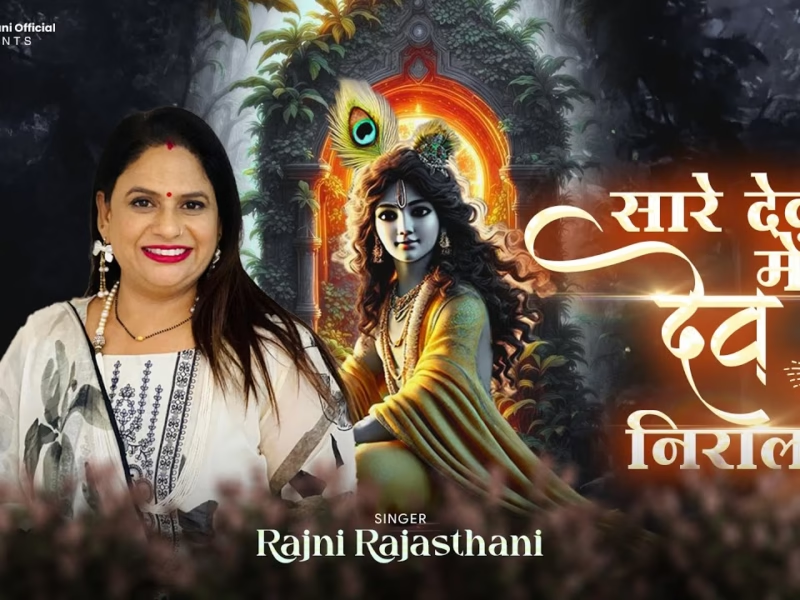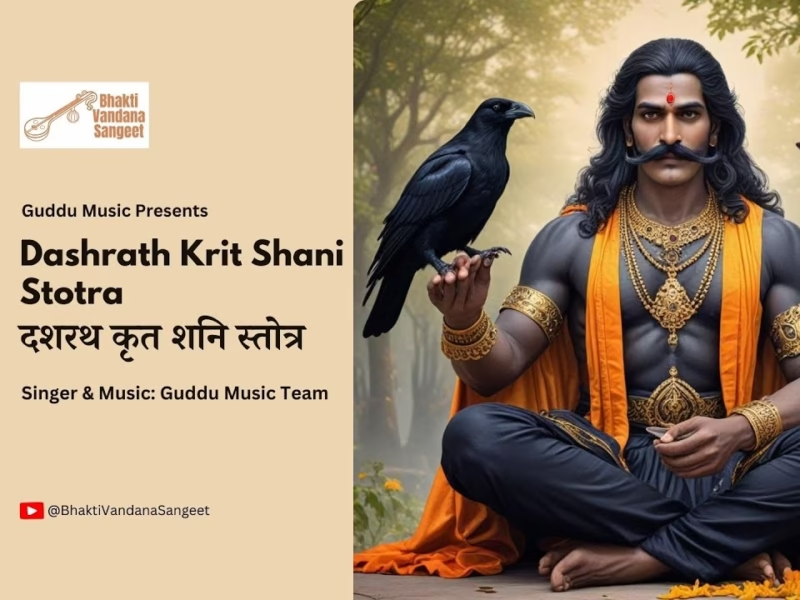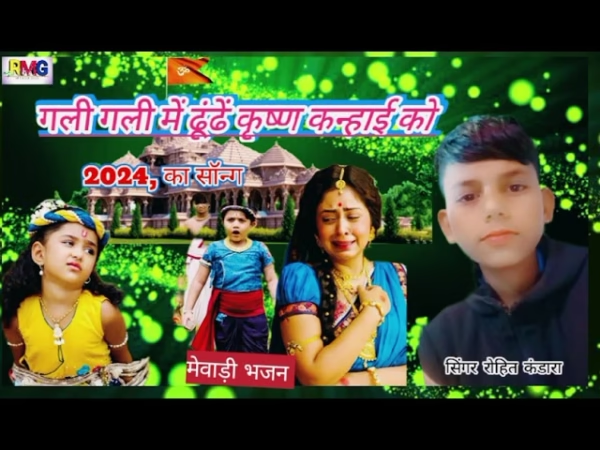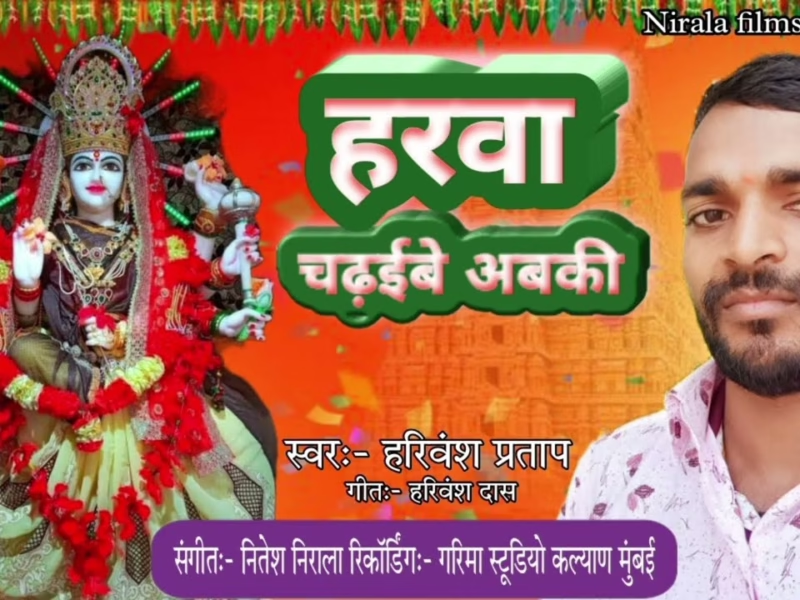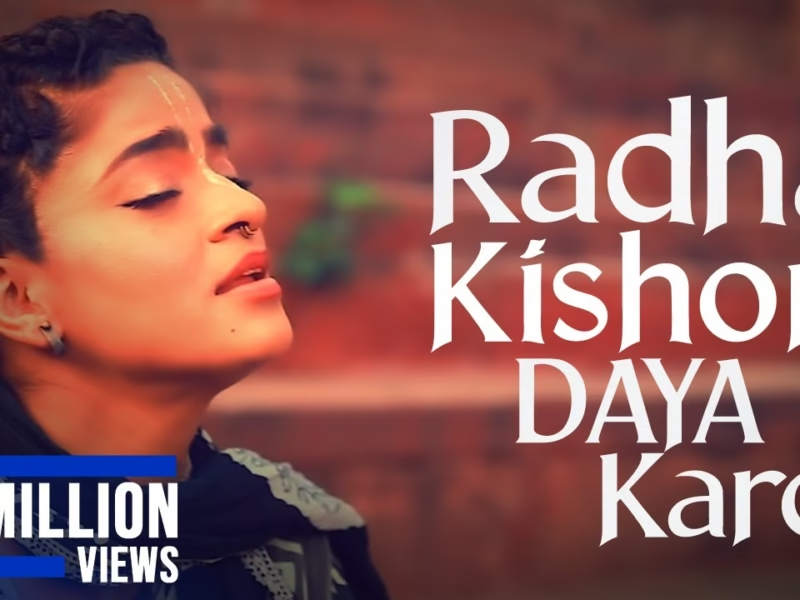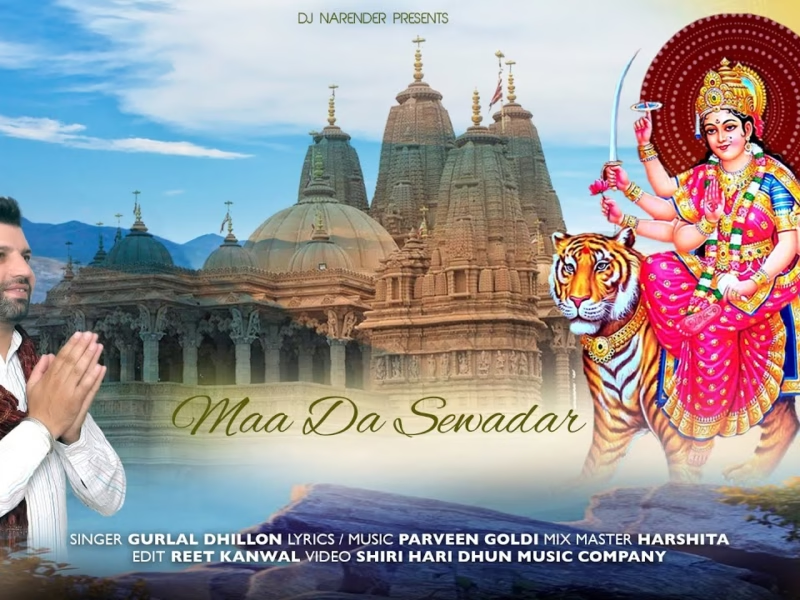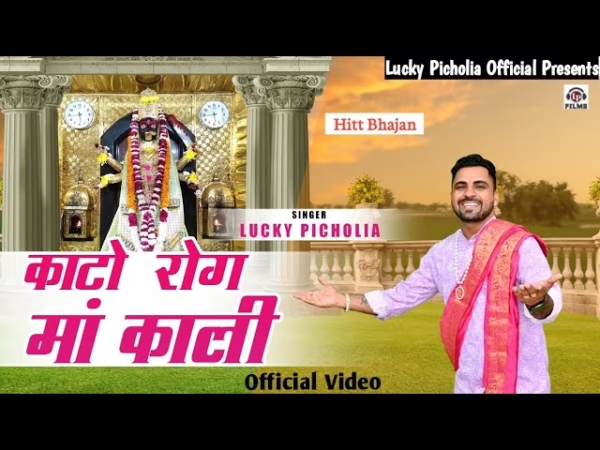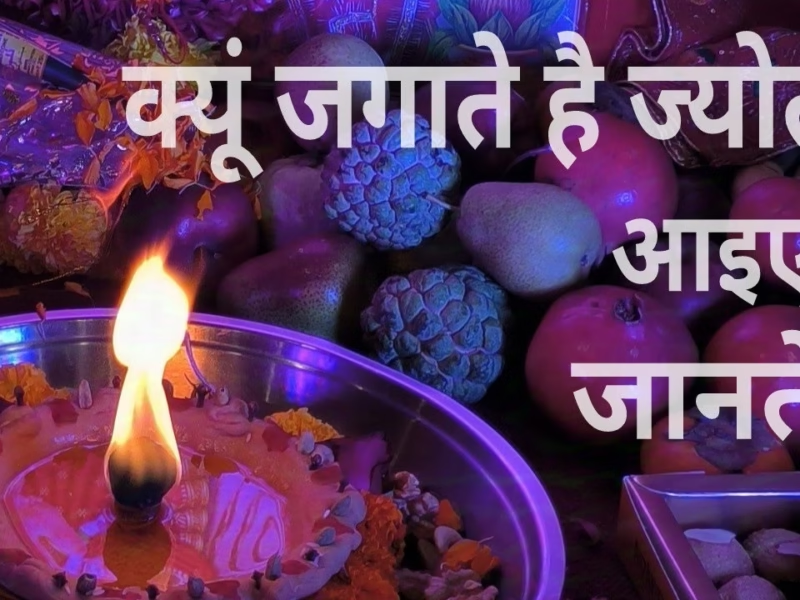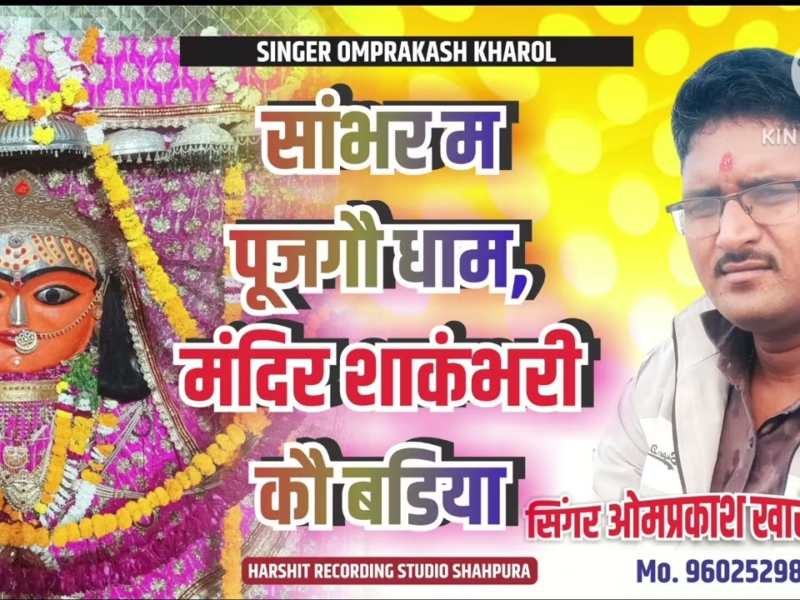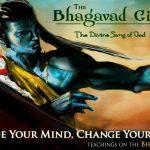ॐ तत्सदिति श्रीमद्भगवद्गीतासूपनिषत्सु ब्रह्मविद्यायां योगशास्त्रेभावार्थ
श्रीकृष्णार्जुनसंवादेऽर्जुनविषादयोगो नाम प्रथमोऽध्यायः। ॥1॥
(मोह से व्याप्त हुए अर्जुन के कायरता, स्नेह और शोकयुक्त वचन )
धृतराष्ट्र उवाच – धर्मक्षेत्रे कुरुक्षेत्रे समवेता युयुत्सवः । मामकाः पाण्डवाश्चैव किमकुर्वत संजय ॥
Dhritarashtra said: O Sanjay, after gathering on the holy field of Kurukshetra, and desiring to fight, what did my sons and the sons of Pandu do?
Sanjay said: On observing the Pandava army standing in military formation, King Duryodhan approached his teacher Dronacharya, and said the following words.
Duryodhan said: Respected teacher! Behold the mighty army of the sons of Pandu, so expertly arrayed for battle by your own gifted disciple, the son of Drupad.
Behold in their ranks are many powerful warriors, like Yuyudhan, Virat, and Drupad, wielding mighty bows and equal in military prowess to Bheem and Arjun. There are also accomplished heroes like Dhrishtaketu, Chekitan, the gallant King of Kashi, Purujit, Kuntibhoj, and Shaibya—all the best of men. In their ranks, they also have the courageous Yudhamanyu, the gallant Uttamauja, the son of Subhadra, and the sons of Draupadi, who are all great warrior chiefs.
Behold in their ranks are many powerful warriors, like Yuyudhan, Virat, and Drupad, wielding mighty bows and equal in military prowess to Bheem and Arjun. There are also accomplished heroes like Dhrishtaketu, Chekitan, the gallant King of Kashi, Purujit, Kuntibhoj, and Shaibya—all the best of men. In their ranks, they also have the courageous Yudhamanyu, the gallant Uttamauja, the son of Subhadra, and the sons of Draupadi, who are all great warrior chiefs.
Behold in their ranks are many powerful warriors, like Yuyudhan, Virat, and Drupad, wielding mighty bows and equal in military prowess to Bheem and Arjun. There are also accomplished heroes like Dhrishtaketu, Chekitan, the gallant King of Kashi, Purujit, Kuntibhoj, and Shaibya—all the best of men. In their ranks, they also have the courageous Yudhamanyu, the gallant Uttamauja, the son of Subhadra, and the sons of Draupadi, who are all great warrior chiefs.
O best of Brahmins, hear too about the principal generals on our side, who are especially qualified to lead. These I now recount unto you.
There are personalities like yourself, Bheeshma, Karna, Kripa, Ashwatthama, Vikarn, and Bhurishrava, who are ever victorious in battle.My whole body shudders;
Also, there are many other heroic warriors, who are prepared to lay down their lives for my sake. They are all skilled in the art of warfare, and equipped with various kinds of weapons.
The strength of our army is unlimited and we are safely marshalled by Grandsire Bheeshma, while the strength of the Pandava army, carefully marshalled by Bheem, is limited.
वाभिरक्षन्तु भवन्तः सर्व एव हि ॥
Therefore, I call upon all the generals of the Kaurava army now to give full support to Grandsire Bheeshma, even as you defend your respective strategic points.
Then, the grand old man of the Kuru dynasty, the glorious patriarch Bheeshma, roared like a lion, and blew his conch shell very loudly, giving joy to Duryodhan.
Thereafter, conches, kettledrums, bugles, trumpets, and horns suddenly blared forth, and their combined sound was overwhelming.
Then, from amidst the Pandava army, seated in a glorious chariot drawn by white horses, Madhav and Arjun blew their Divine conch shells.
Hrishikesh blew his conch shell, called Panchajanya, and Arjun blew the Devadutta. Bheem, the voracious eater and performer of herculean tasks, blew his mighty conch, called Paundra.
द्रुपदो द्रौपदेयाश्च सर्वशः पृथिवीपते ।सौभद्रश्च महाबाहुः शंखान्दध्मुः पृथक्पृथक् ॥
The terrific sound thundered across the sky and the earth, and shattered the hearts of your sons, O Dhritarasthra.
अथ व्यवस्थितान्दृष्ट्वा धार्तराष्ट्रान् कपिध्वजः ।प्रवृत्ते शस्त्रसम्पाते धनुरुद्यम्य पाण्डवः ॥हृषीकेशं तदा वाक्यमिदमाह महीपते ।
At that time, the son of Pandu, Arjun, who had the insignia of Hanuman on the flag of his chariot, took up his bow. Seeing your sons arrayed against him, O King, Arjun then spoke the following words to Shree Krishna.
अर्जुन उवाच -सेनयोरुभयोर्मध्ये रथं स्थापय मेऽच्युत ॥
Arjun said: O Infallible One, please take my chariot to the middle of both armies.
So that I may look at the warriors arrayed for battle, whom I must fight in this great combat.
I desire to see those who have come here to fight on the side of the evil-minded son of Dhritarasthra, wishing to please him.
Sanjay said: O Dhritarasthra, having thus been addressed by Arjun, the conqueror of sleep, Shree Krishna then drew the magnificent chariot between the two armies.
In the presence of Bheeshma, Dronacharya, and all the other kings, Shree Krishna said: O Parth, behold these Kurus gathered here.
There, Arjun could see stationed in both armies, his fathers, grandfathers, teachers, maternal uncles, brothers, cousins, sons, nephews, grand-nephews, friends, fathers-in-law, and well-wishers.
Seeing all his relatives present there, Arjun, the son of Kunti, was overwhelmed with compassion, and with deep sorrow, spoke the following words.
Arjun said: O Krishna, seeing my own kinsmen arrayed for battle here and intent on killing each other, my limbs are giving way and my mouth is drying up.
my hair is standing on end. My bow, the Gāṇḍīv, is slipping from my hand, and my skin is burning all over. My mind is in quandary and whirling in confusion; I am unable to hold myself steady any longer.
O Krishna, killer of the Keshi demon, I only see omens of misfortune. I do not foresee how any good can come from killing my own kinsmen in this battle.
O Krishna, I do not desire the victory, kingdom, or the happiness accruing it. Of what avail will be a kingdom, pleasures, or even life itself
Teachers, fathers, sons, grandfathers, maternal uncles, grandsons, fathers-in-law, grand-nephews, brothers-in-law, and other kinsmen are present here, staking their lives and riches.
O Madhusudan, I do not wish to slay them, even if they attack me. If we kill the sons of Dhritarashtra, what satisfaction will we derive from the dominion over the three worlds, what to speak of this Earth?
O Maintainer of all living entities, what pleasure will we derive from killing the sons of Dhritarasthra? Even though they may be aggressors, sin will certainly come upon us if we slay them.
Hence, it does not behoove us to kill our own cousins, the sons of Dhritarashtra, and friends. O Madhav (Krishna), how can we hope to be happy by killing our own kinsmen?
Their thoughts are overpowered by greed and they see no wrong in annihilating their relatives or wreaking treachery upon friends.
Yet, O Janardan (Krishna), why should we, who can clearly see the crime in killing our kindred, not turn away from this sin?
When a dynasty is destroyed, its traditions get vanquished, and the rest of the family becomes involved in irreligion.
With the preponderance of vice, O Krishna, the women of the family become immoral; and from the immorality of women, O descendent of Vrishni, unwanted progeny are born.
An increase in unwanted children results in hellish life both for the family and for those who destroy the family. Deprived of the sacrificial offerings, the ancestors of such corrupt families also fall.
Through the evil deeds of those who destroy the family tradition and thus give rise to unwanted progeny, a variety of social and family welfare activities are ruined.
O Janardan (Krishna), I have heard from the learned that those who destroy family traditions dwell in hell for an indefinite period of time.
Alas! How strange it is that we have set our mind to perform this great sin. Driven by the desire for kingly pleasures, we are intent on killing our own kinsmen
It will be better if, with weapons in hand, the sons of Dhritarashtra kill me unarmed and unresisting on the battlefield.
Table of Contents
- Chapter 1: अर्जुनविषादयोग- नामक पहला अध्याय
Arjun Viṣhād Yog : Lamenting the Consequences of War - Chapter 2: सांख्ययोग-नामक दूसरा अध्याय
Sānkhya Yog : The Yog of Analytical Knowledge - Chapter 3: कर्मयोग- नामक तीसरा अध्याय
Karm Yog : The Yog of Action - Chapter 4: ज्ञानकर्मसंन्यासयोग- नामक चौथा अध्याय
Jñāna Karm Sanyās Yog : The Yog of Knowledge and the Disciplines of Action - Chapter 5: कर्मसंन्यासयोग- नामक पाँचवाँ अध्याय
Karm Sanyās Yog : The Yog of Renunciation - Chapter 6: आत्मसंयमयोग- नामक छठा अध्याय
Dhyān Yog : The Yog of Meditation - Chapter 7: ज्ञानविज्ञानयोग- नामक सातवाँ अध्याय
Jñāna Vijñāna Yog : Yog through the Realization of Divine Knowledge - Chapter 8: अक्षरब्रह्मयोग- नामक आठवाँ अध्यायAkṣhar Brahma Yog : The Yog of the Eternal God
- Chapter 9: राजविद्याराजगुह्ययोग- नामक नौवाँ अध्यायRāja Vidyā Yog : Yog through the King of Sciences
- Chapter 10: विभूतियोग- नामक दसवाँ अध्यायVibhūti Yog : Yog through Appreciating the Infinite Opulences of God
- Chapter 11: विश्वरूपदर्शनयोग- नामक ग्यारहवाँ अध्याय
Viśhwarūp Darśhan Yog : Yog through Beholding the Cosmic Form of God - Chapter 12: भक्तियोग- नामक बारहवाँ अध्यायBhakti Yog : The Yog of Devotion
- Chapter 13: क्षेत्र-क्षेत्रज्ञविभागयोग- नामक तेरहवाँ अध्याय
Kṣhetra Kṣhetrajña Vibhāg Yog : Yog through Distinguishing the Field and the Knower of the Field - Chapter 14: गुणत्रयविभागयोग- नामक चौदहवाँ अध्यायGuṇa Traya Vibhāg Yog : Yog through Understanding the Three Modes of Material Nature
- Chapter 15: पुरुषोत्तमयोग- नामक पंद्रहवाँ अध्यायPuruṣhottam Yog : The Yog of the Supreme Divine Personality
- Chapter 16: दैवासुरसम्पद्विभागयोग- नामक सोलहवाँ अध्याय
Daivāsura Sampad Vibhāg Yog : Yog through Discerning the Divine and Demoniac Natures - Chapter 17: श्रद्धात्रयविभागयोग- नामक सत्रहवाँ अध्यायŚhraddhā Traya Vibhāg Yog : Yog through Discerning the Three Divisions of Faith
- Chapter 18: मोक्षसंन्यासयोग- नामक अठारहवाँ अध्याय
Mokṣha Sanyās Yog : Yog through the Perfection of Renunciation and Surrender


